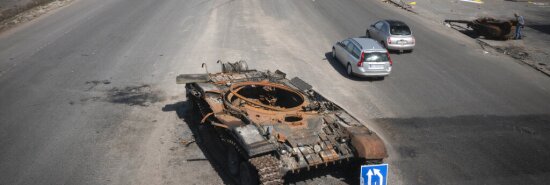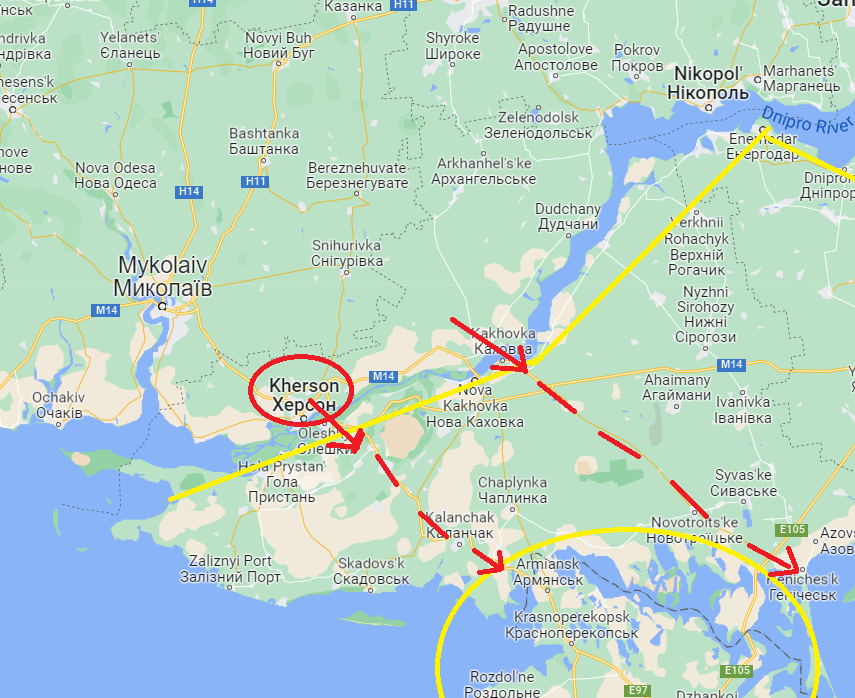
Crimea, politics, and why Russia had to retreat from Kherson
Tom Rogan
Video Embed
Russia has announced that its deputy governor of Kherson province, Kirill Stremousov, has been killed in a car crash. Whether this is a car crash of the normal kind or a “he fell out of a window” incident is unclear. Regardless, the announcement wasn’t the toughest admission Moscow made on Wednesday.
That came with its declaration that Russian forces occupying the southern Ukrainian city of Kherson have been ordered to retreat to the left bank of the Dnieper River. While this is certainly the right tactical decision, one necessary for the strategic interest of defending Crimea against Ukrainian encirclement, it’s also a very painful defeat for Russian President Vladimir Putin.
IRANIAN ASSASSINATION PLOTS ARE ESCALATING. THE WEST MUST RESPOND
Russia’s top commander for Ukraine operations, Gen. Sergei Surovikin, observed as much. He noted that “this is a very difficult decision. At the same time, we will preserve, most importantly, the lives of our servicemen and the overall combat capability of the group of troops.” Surovikin added that “part of the forces and means will be freed up, which will be used for active operations, including offensive ones, in other directions in the operation zone.”
This is only partly true. Had Russian forces remained in Kherson, they would have suffered pointless deaths while wedged between Ukrainian forces attacking the city and the Dnieper River. Still, Surovikin’s suggestion that these forces will now be available for offensive actions is an unserious one. On the contrary, Kherson offered Russia its only territorial anchor on the right bank of the Dnieper River (which bisects eastern and western Ukraine). The city was critical for Russia’s aspiration of further ground operations in western Ukraine. Without Kherson, those operations cannot take place (unless Russia somehow scrounges the forces to restart a new southern offensive from Belarus). By abandoning Kherson, Putin is admitting that he has lost the offensive initiative beyond his failed attempt to drone/missile strike Ukraine into compromise. Part of one of four Ukrainian provinces Russia recently claimed as its own territory, the retreat from Kherson city is both symbolically and structurally painful.
Yet the retreat is necessary if Putin wants to preserve a contagious land corridor between Russia, other areas of occupied eastern Ukraine, and the holy grail of his Ukraine adventurism, Crimea. Consider my annotated map below. Kherson is circled in red, with Russia’s rough new defensive lines shown as yellow lines. Crimea is circled in yellow at the lower center.

This retreat means that Russian forces can now concentrate their contiguous defensive lines and facilitate easier logistics trains. That logistics point is of particular concern as Russian forces run ever-lower on munitions, medical and personal equipment, and food supplies. These needs, and the difficulty of fulfilling them, will only grow as Ukraine’s bitter winter descends. Most important of all, the new defensive lines help Russia reduce the possibility of a Ukrainian encirclement via its offensive crossing of the Dnieper River from both Kherson and another area, such as Kozatske, which is about 35 miles east of Kherson. Russian forces have shown they cannot conduct organized retreats. As shown by the red dotted lines, such a Ukrainian offensive would have risked a Ukrainian rush through Russian forces retreating from Kherson and down the P47 highway to the city of Heniches’k on the Sea of Azov. If successful, that offensive would isolate Crimea, producing a critical challenge to the domestic credibility of Putin’s military campaign. Because of Crimea’s almost theological value to the Russian elites, it might also threaten Putin’s very rule.
Standing alongside Gen. Surovikin, Defense Minister Sergei Shoigu declared, “I agree with your conclusions and suggestions. For us, the life and health of Russian servicemen is always a priority.” While this attestation of concern is patently false, deconstructed as it is by the endemic corruption, murderous bullying, and supply disgraces that so afflict the Russian armed forces, it does reflect the Kremlin’s growing concern over morale issues. As the body bags keep coming home and the defeats keep stacking up, the war in Ukraine translates into an increasingly concerning domestic reality for Putin’s government.
In that sense, the retreat from Kherson is both a military and political necessity.
CLICK HERE TO READ MORE FROM THE WASHINGTON EXAMINER
